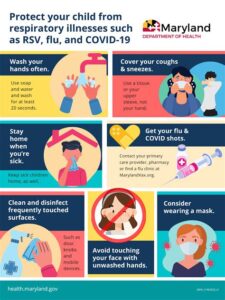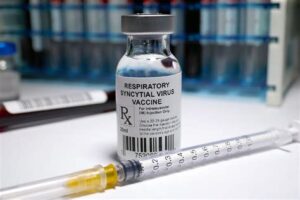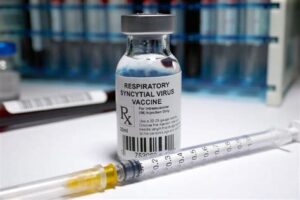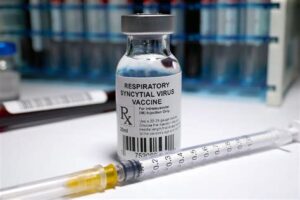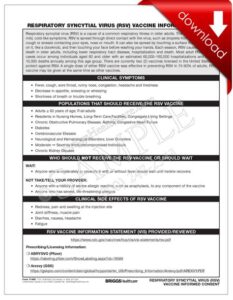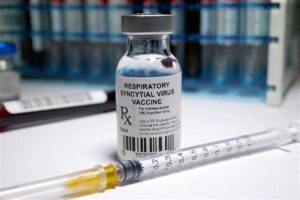Explore RSV vaccine insights, including common side effects, severe reactions, prevention tips, and when to seek medical help for enhanced safety.The development of the Respiratory Syncytial Virus (RSV) vaccine marks a significant breakthrough in protecting vulnerable populations, particularly infants and the elderly. However, as with any medical intervention, it is essential to be aware of potential adverse reactions that may arise post-vaccination. Understanding how the RSV vaccine works can help alleviate concerns, but it’s equally important to recognize common side effects and the rare severe reactions that some individuals may experience. This blog post aims to shed light on these aspects, offering valuable insights into preventing adverse reactions and knowing when to seek medical assistance. By arming yourself with knowledge, you can make informed decisions about vaccination and contribute to a healthier community.
Understanding RSV Vaccine
The RSV (Respiratory Syncytial Virus) vaccine is a medical advancement designed to protect vulnerable populations, particularly infants and the elderly, from severe respiratory illness caused by the RSV. This virus is a common cause of respiratory infections in young children, leading to hospitalizations in some cases. The development of an effective vaccine aims to significantly reduce the incidence of RSV-related complications.
The RSV vaccine works by stimulating the body’s immune response against the virus. It contains an inactive or weakened form of the virus or components of the virus that trigger an immune response without causing the disease itself. Ongoing clinical trials and studies are crucial to ensure the vaccine’s efficacy and safety, providing hope for families concerned about RSV.
As with any vaccination, it’s important to understand the potential for adverse reactions. These can range from mild side effects, such as soreness at the injection site or a low-grade fever, to more severe reactions. It is essential for healthcare providers to inform patients about these possibilities while emphasizing the substantial benefits of vaccination in preventing severe illness.
Common Side Effects
The RSV vaccine is a significant advancement in preventing respiratory syncytial virus infections, particularly in vulnerable populations such as infants and the elderly. Like any medical intervention, the vaccine can have side effects. It’s essential to be aware of these to make an informed decision about vaccination.
- Injection site reactions: Pain, redness, or swelling at the injection site are the most commonly reported side effects.
- Fever: A mild fever may occur, usually resolving within a day or two after vaccination.
- Fatigue: Some individuals may feel more tired than usual following the vaccination.
- Headache: Mild headaches can occur as part of the body’s response to the vaccine.
- Nausea: A small number of people may experience feelings of nausea shortly after receiving the vaccine.
While these common side effects are generally mild and temporary, they indicate that the body is responding to the vaccine. It’s crucial to monitor any reactions following vaccination and communicate with healthcare providers if concerns arise. Understanding these common side effects can help patients feel more prepared and less anxious about receiving the RSV vaccine.
Severe Adverse Reactions
The RSV vaccine, while generally safe and effective, can occasionally lead to severe adverse reactions in a small number of recipients. Understanding these potential reactions is crucial for both patients and healthcare providers.
Some of the most serious reactions associated with the RSV vaccine include anaphylaxis, which is a rapid and severe allergic reaction, and Guillain-Barré syndrome, a rare neurological disorder that can result in muscle weakness and paralysis. It is essential to recognize these symptoms early to ensure prompt medical intervention.
In the case of severe reactions, immediate medical assistance is vital. Patients are usually monitored for a short period following vaccination to catch any adverse effects early. If you or someone you know experiences alarming symptoms after receiving the RSV vaccine, seek medical help right away.
Preventing Adverse Reactions
When considering the RSV vaccine, it is crucial to understand the steps that can be taken to minimize adverse reactions. One of the most effective strategies is ensuring that the vaccine is administered by a trained healthcare professional. Proper administration can significantly reduce the likelihood of complications.
Additionally, patients should be screened for any pre-existing medical conditions or allergies before receiving the vaccine. This can help health professionals identify individuals who may be at a higher risk of experiencing severe side effects. A detailed medical history can provide valuable insights for preventing potential adverse reactions.
Post-vaccination care is also vital. Individuals should be monitored for a short period after receiving the vaccine to detect any immediate reactions. Educating patients about the normal side effects versus severe adverse reactions can empower them to seek timely medical assistance if warranted. Creating awareness and providing clear instructions can play a pivotal role in minimizing complications.
Seeking Medical Assistance
When it comes to the RSV vaccine, most individuals handle the immunization without significant issues. However, it’s essential to recognize that some may experience adverse reactions. If you notice any unusual symptoms post-vaccination, seeking medical assistance is crucial.
- Severe Allergic Reactions: Symptoms such as difficulty breathing, swelling of the face or throat, and a rapid heartbeat.
- High Fever: A persistent fever that rises above 101°F (38.3°C) should not be ignored.
- Persistent Rash or Skin Changes: Any rash that spreads or becomes painful, along with other skin changes.
Always consult a healthcare professional if you have any concerns about the RSV vaccine or its effects. Prompt action can prevent more severe complications, ensuring a smoother post-vaccination experience.
Frequently Asked Questions
What is RSV and why is the vaccine important?
Respiratory Syncytial Virus (RSV) is a common virus that can cause severe respiratory infections, particularly in infants and the elderly. The vaccine is important as it helps reduce the incidence of RSV infections and their associated complications.
What are common adverse reactions associated with the RSV vaccine?
Common adverse reactions can include mild side effects such as soreness at the injection site, fatigue, headache, and mild fever. Serious reactions are rare but can occur.
How do healthcare professionals monitor for adverse reactions?
Healthcare professionals monitor for adverse reactions through patient observations post-vaccination, follow-up questionnaires, and reporting systems that track vaccine safety.
What should someone do if they experience a severe reaction to the RSV vaccine?
If someone experiences a severe reaction, such as difficulty breathing or a rapid heartbeat, they should seek immediate medical attention and report the reaction to their healthcare provider.
Are there specific groups that should avoid the RSV vaccine?
Certain groups, including individuals with severe allergies to vaccine components or with specific medical conditions, should consult their healthcare provider before receiving the RSV vaccine.
What is the overall benefit-risk balance of the RSV vaccine?
The overall benefit-risk balance of the RSV vaccine is considered favorable, as the benefits of preventing serious RSV infections generally outweigh the risks of potential adverse reactions.
What future developments are anticipated regarding the RSV vaccine?
Future developments may include improved formulations of the vaccine, new delivery methods, and ongoing research to enhance its effectiveness and safety profile.
